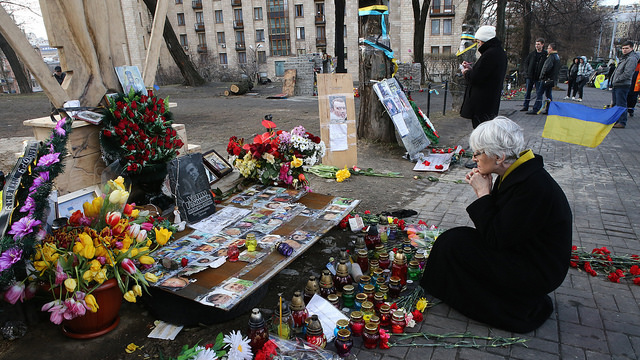This article discusses the possible threat of nuclear war if Russia decides to invade Ukraine and how there are better solutions to conflict resolution than threatening the use of nuclear weapons.
The article begins as follows:
The US and Russia keep nearly 2000 strategic nuclear weapons deployed and ready to launch. Modern strategic nuclear weapons generally have much larger yields than the bombs dropped on Hiroshima and Nagasaki. A single nuclear warhead has easily enough explosive power to destroy a city and kill millions. An exchange of 100 of these weapons—which would be devastating in itself—would kick enough soot into the atmosphere to disrupt the global climate and cause a worldwide famine. A more total conflict between the US and Russia could threaten the survival of the human race and of life on Earth more generally.
No country wants to fight a nuclear war over Ukraine. Nor is it very likely that Russian intervention in Crimea will lead to a nuclear war. But it’s not just the lives and futures of the 46 million people who live in Ukraine—as if that weren’t enough—that are at stake. Ukraine is central to Russia’s conception of itself as a civilization and as an empire, as well as to Vladimir Putin’s plans to enlarge Russia’s sphere of political and economic influence. But Ukraine is also a European country. Four of its neighbors are European Union members and Ukraine itself has more or less been invited to join the European Union. Ukraine’s neighbors—like many Ukrainians—fought hard for democracy and their independence from Russia.
Any time Russia and the US are at odds, the chance of nuclear Armageddon goes up. Just a little bit maybe, but still too much. Although war itself is in neither side’s interest, it may be in each side’s interest to threaten to go to war. The US and Russia—to borrow an analogy from the game theorist Thomas Schelling (1)—are like two people in a canoe. Neither can swim, so if the canoe tips over, they both drown. And if they fight over something, the canoe might tip over, killing them both. Neither person wants that. But if one of them does want something else badly enough, they could threaten to start a fight in the canoe—risking everyone’s lives—in order to get their way.
The remainder of the article is available in Anthropocene blog.
Image credit: US Embassy in Kyiv
This blog post was published on 28 July 2020 as part of a website overhaul and backdated to reflect the time of the publication of the work referenced here.










